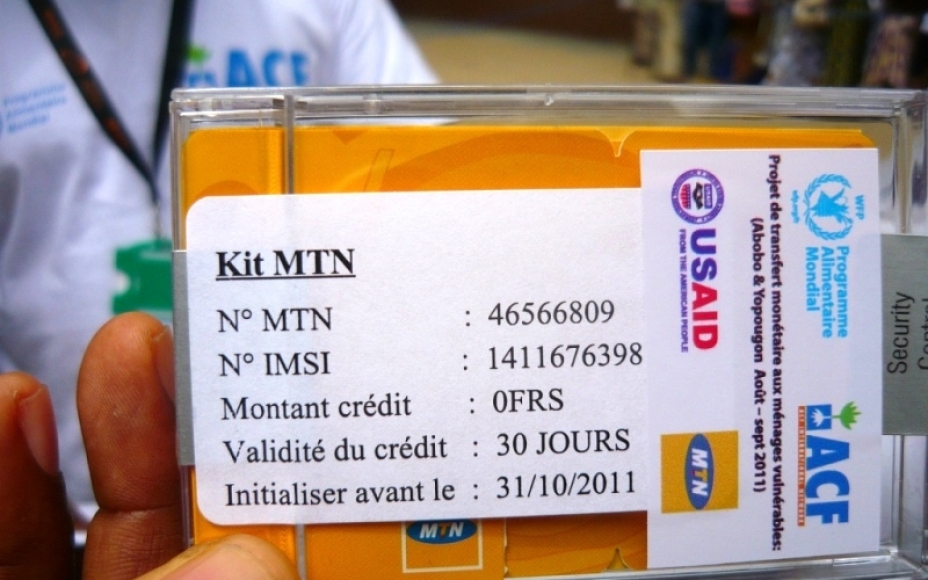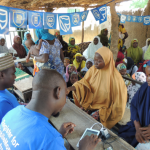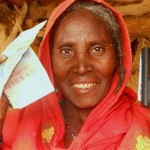In the second part of a series of three articles, ARI researchers Jamie Hitchen and Nick Branson consider claims about the efficacy of cash transfers in Africa.

WFP/Jonas Soubeiga
‘The Cash Dividend’, a 2012 World Bank report, stated that “experiences—many relatively successful—reveal that the question is not whether cash transfers can be used in the region [sub-Saharan Africa], but how they should be used, and how they can be adapted and developed to meet social protection and development goals”. Other donors agree. In 2013-14, the UK’s Department for International Development (DFID) supported projects that reached 6.7 million people with cash transfers.
There is evidence to support claims about the efficacy of cash transfers. In Kenya, a programme to support poor families with orphans produced a 13% decline in household poverty; in South Africa a scheme targeting adolescents at risk of contracting HIV/Aids helped to halve ‘risky behaviour’; while in Malawi and Liberia initiatives aimed at the elderly and disenfranchised youth have resulted in gradual improvements.
However, we need to look beyond eye-catching headlines. Here are five things to consider:
- Reaching the poorest: Development experts and donors have long talked about the need to target the most vulnerable and impoverished citizens, but with limited success. Rather than hoping for trickle-down effects from financing government expenditure, well-planned and -executed cash transfers can reach these intended beneficiaries. In Zambia, information collected by the Public Welfare Assistance Scheme was successfully used to target those most in need: the ultra-poor. However, a paucity of credible data on the poorest citizens is often a sizeable obstacle to identifying and reaching vulnerable groups.
- Gender empowerment: Directly transferring money to women can empower them to take decisions on behalf of the household. In Côte d’Ivoire, a study concluded that women invest more in health and education for their children than men. However, innovation involves risk and the possibility of harm. Male-headed households are the norm in many African countries. Donors need to ensure that cash transfers to women do not trigger conflict and domestic violence. The risk of cash transfers driving community conflict has also not yet received sufficient consideration.
- Value for money: Cash transfers have been shown to deliver value for money and be less susceptible to corruption or fraud than more conventional methods of aid delivery. Electronic transfers – mobile money or e-vouchers – reduce the longer-term costs of an intervention by facilitating unprecedented speed and depth of access. However, a study undertaken by Mercy Corps in the Democratic Republic of Congo revealed that working with an existing mobile money network was actually more costly than setting up a physical delivery system. High start-up costs and global currency fluctuations reinforce the need for long-term thinking, planning and support of cash transfer initiatives, led by Africans.
- Sustainability: Development partners need to assess, above all else, the issue of the long-term sustainability of cash transfers. Do African governments have the wherewithal or motivation to persevere with cash transfers when donor assistance inevitably ceases? In the absence of a plausible exit strategy, does long-term donor funding of such programmes undermine the development of a ‘social contract’ between citizens and their own governments? To date, the cash transfer agenda is almost exclusively donor-led in Africa.
- Perception: In the absence of strong local ownership, donors need to handle public relations carefully. Cash transfer programmes could potentially be portrayed as merely adding African citizens to an already unsustainable domestic welfare burden, or as enabling unaccountable beneficiaries to misspend donor money. In fact, cash transfers are most commonly spent on food, shelter, health, education and small business investments. In Uganda, a randomised control trial found that recipients of cash worked 17% more hours and had 40% higher earnings compared to those not eligible for the grant. A World Bank study of 19 cash transfer programmes found only two where ‘wastage’ was a feature.
Some African governments are genuinely embracing cash transfer programmes. The Zambian government has gradually taken on greater fiscal responsibility for an initiative that now reaches 145,000 households across 50 districts: at present it funds over 80% of the cost. This commitment could be interpreted as a sign that the Livingstone Accord, signed by thirteen African states in 2006, is gaining some traction. But the majority of social cash grant initiatives are only adopted because donors offer the funding, not because citizens demand them or governments recognise a moral obligation to alleviate poverty. Sustainability also depends on better domestic revenue mobilisation, a necessity on which the record of African governments is patchy.
Research by the Centre for Global Development argues that in some countries, the financing of cash transfers could involve using natural resource tax revenues. Despite the low price of oil, Nigeria still expects to generate over US$34 billion of revenue from oil and gas in 2015. However, committing US$7.5 billion annually to the cash transfer initiative promised in the manifesto of the new APC government remains unlikely. If the means were found in Nigeria, it would be a momentous declaration of intent to tackle high poverty levels and growing inequality.
Overhyped?
Cash transfers have a role to play in reducing poverty in Africa. But if their impact is to be sustained African governments and citizens must drive their introduction and, ultimately, their financing – not foreign donors. A careful consideration of both the merits and pitfalls of cash transfers is equally essential: there is no such thing as a ‘silver bullet’ in development.












